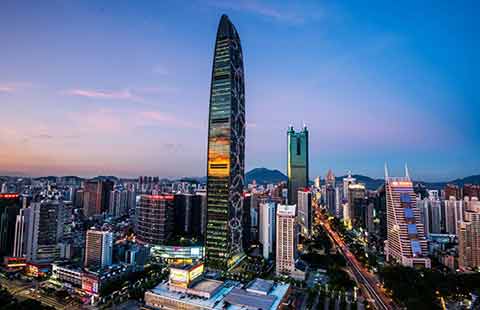Chinese firms make inroads in Brazil
By Tuo Yannan in Sao Paulo, Brazil (China Daily) Updated: 2012-07-27 09:27An estimated 84 percent of China's imports from Brazil are raw materials and agricultural goods, including iron ore and soybeans. The huge Chinese demand for the commodities led to an 18-fold increase in Brazil's exports to China between 2000 and 2009.
H Stern, the biggest gem company in Brazil, is getting attention from an increasing number of Chinese customers and is seeking the opportunity to open stores in China, said Ronaldo Stern, vice-president of H Stern, in an interview with China Daily.
Stern said that in recent years, his store has more and more Chinese customers, and he has started to hire people who understand Chinese culture to work with him.
"To find a good location and local partners is not easy in China," he said.
The company has been researching the Chinese market for more than five years, but hasn't made a decision yet. H Stern is already present in more than 30 countries, including the US and Japan.
Trade barriers
Sao Paulo, the biggest city in Brazil, represents more than 25 percent of the taxes of the country. The city, which has a population of 19 million, ranked No 7 of the top 10 biggest cities in 2010. The economic center of the country is also the place where most of the Chinese companies are setting up their headquarters.
However, its interstate tax rate of up to 18 percent increases the cost of business for many Chinese companies. And red tape also causes problems for companies, from hiring employees to transferring cargo across different Brazilian states.
"The tax system here is very complicated," said Jack Lu, Brazilian market chief representative of the Chinese automaker Chery. "We spent about three years researching and learning about the market before we entered it in 2009."
Trade investigations are emerging as another headache for Chinese companies in the country. There has been an increase in the number of trade complaints filed by Brazil against China. More than 100 anti-dumping investigations were launched by Brazil in 2010 - nearly 50 were against China.
According to Hugueney, the Brazilian ambassador, increased investment in local production is the key to improving trade relations.
"Brazil is seeking more Chinese investment in the manufacturing sector to avoid trade conflicts between the two nations," he said.
tuoyannan@chinadaily.com.cn
- AIIB officially launched, to become operational in mid-January
- China to launch new board for strategic emerging sectors in 2016
- China likely to launch Shenzhen-HK Stock Connect next year: CSRC
- Alibaba to invest $1.25b in food delivery app ele.me
- Alibaba to invest $1.25b in Chinese online food service
- HK car show kicks off during Christmas season
- China's pro-growth moves produce big dividends for global economy
- 'New normal' needs new interpretation

















